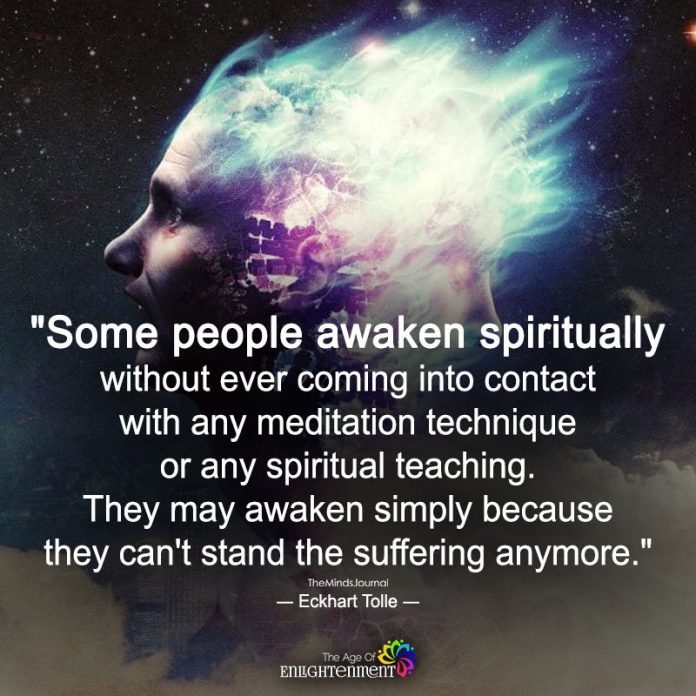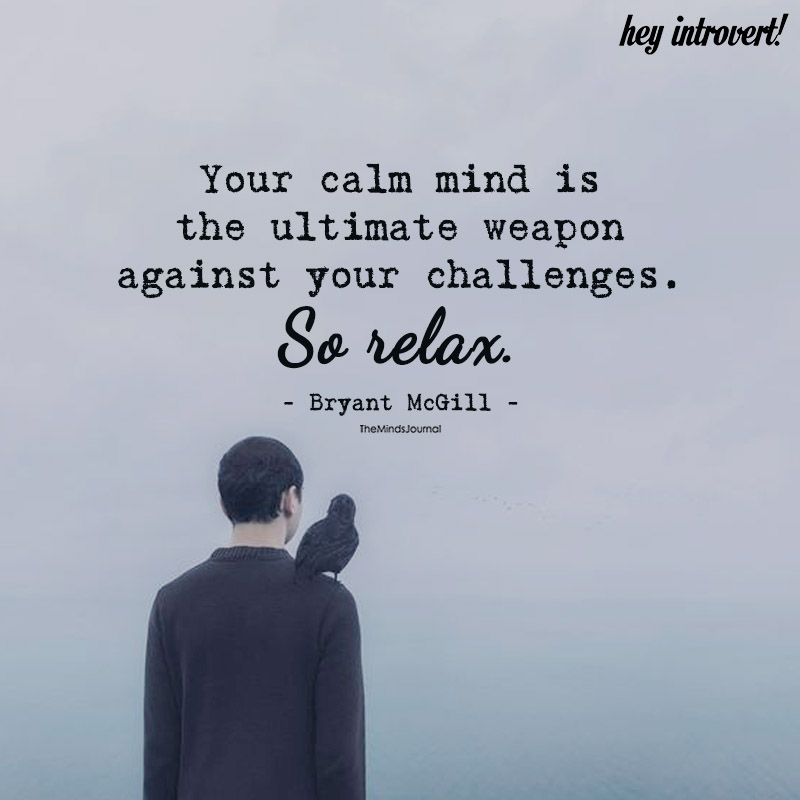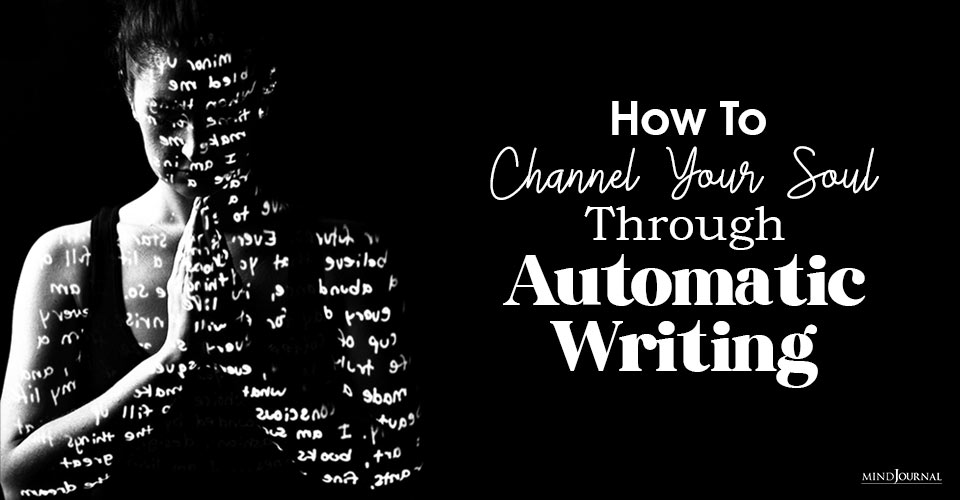In automatic writing, we’re not individual writers but rather working with our spirit guides to peek deep into our souls. Through automatic writing, also known as psychography, you can discover more about yourself and get clarity in your life.
Automatic writing is a simple, safe, and powerful way to connect with your Soul. But don’t be intimidated by the “writing” part! Automatic writing can be practiced by anyone, from beginners who have just begun their spiritual journey, to seasoned travelers on the inward path.
You don’t have to be a “good writer” or bother about spelling and grammar at all – none of that matters! Automatic writing is totally intuitive, so the only thing that matters is your heart and underlying intention.
In this article, I want to share with you how to hone this magical skill, even if you have zero experience!
What is Automatic Writing?
Automatic writing, also known as psychography, is the practice of tapping into a deep source of wisdom within you outside of conscious awareness – also known as the Soul. This intuitive writing practice is usually done in a trance-like or altered state of consciousness.
Psychologists and spiritualists have varying beliefs about the origin of automatic writing, with some arguing that it is sourced from the unconscious mind, and others claiming that it originates from supernatural forces such as spirit guides and angels.
My personal belief is that automatic writing is sourced from the unconscious mind which is a doorway into the Soul or Higher Self. This makes automatic writing a wonderful way to gain profound and accurate life guidance!
The Benefits of Automatic Writing
As you slowly and steadily learn the art and craft of automatic writing, you’ll see just how deeply it can transform your life.
Here are the main benefits of this wondrous practice:
- Calming and centering effect on the mind and body
- Gaining direct spiritual guidance from your Soul/Higher Self
- More inner clarity and birds-eye-view understanding
- Improved ability to make wise decisions
- Healing/balancing the third eye chakra and throat chakra
- Increased heart connection
- Intuitive abilities are sharpened, honed, and developed
- Feeling more supported and deeply understood by life
- Improved ability to trust your primal gut instincts
- Understanding what your path and purpose is in this life
There are many other benefits of automatic writing and that is part of the wondrous joy of this practice – you never know precisely how it’s going to enrich your life next! Gradually you’ll discover that different parts of yourself and your life have undergone some kind of spiritual alchemy in the most subtle yet profound way.
Automatic Writing and Spiritual Awakening

Many people who have undergone a spiritual awakening often find themselves drawn instinctually to automatic writing. There’s something about the mystery and magic inherent in this practice that makes it humbling, revealing, and healing – qualities that every spiritual seeker needs.
Automatic writing is also a spiritual practice just as relevant and beneficial as yoga or meditation as it opens a gateway to experiences of self-realization and spiritual Oneness. Such sublime tastes of these Divine revelations can offer tremendous guidance, direction, and insight for the Soul in search of its true Home.
Read: 8 Signs Of A Spiritual Awakening And How To Manage These Shifts
How to Channel Your Soul Through Automatic Writing
Essentially, automatic writing, when broken down into simple steps, is quite straightforward. It involves:
- Getting a pen and paper/opening a notepad or word document
- Thinking of a question to ask
- Writing down the question
- Relaxing your body and mind
- Allowing the writing to flow spontaneously
However, entering the flow needed for automatic writing can be fairly tricky without some kind of guidance (unless you have a natural gift for it). You might also find, like many people, that the first time you try automatic writing it goes really well. But after that, you struggle a lot!
The reason this happens is that when we first try something new, our minds are often empty of belief and expectation (also known as the ‘Beginner’s Mind’). However, afterward, we begin to accumulate mental baggage and expectations which tend to block the process of spontaneous revelation.
Don’t worry if this happens. What you’ll need to learn is how to empty the mind. I’ll share some tips below about how to do that – along with the basic process of automatic writing, from start to finish:
1. Set aside a time and space
Before starting an automatic writing session, it’s important that you give yourself as much time as needed to express what needs to be expressed.
One surefire way to hinder the flow of information is time pressure and the expectation that it “should” take a certain amount of time. In my experience, automatic writing can take a couple of minutes anywhere up to half an hour or more.
Basically, create a space in which you can relax as much as possible mentally. You may benefit from reserving time in the afternoons when you can’t be disturbed or any time when you can’t be interrupted for at least an hour.
Remember, you deserve this time to yourself! Automatic writing is an inner work practice that nourishes and revitalizes your deeper self. Treat this practice as sacred and know that you’re worthy of experiencing this! If, for some reason, you need to keep the session short, set a timer so you don’t have to worry about checking the time frequently.
2. Think of a question that you want guidance for
The whole purpose of automatic writing is to access guidance from your Soul, especially if you struggle to hear it in daily life. Start each session with a clear question, and write it down in your journal or word document.
Choose a question that has really been pulling at your heart or eating you up inside. The more emotionally charged the question is, the clearer your response will be. This step is also known as setting an intention.
It’s also important that you address your question to someone or something in particular such as your Soul, a Spirit Guide, or your unconscious mind. For example, your question could be “Dear Soul, why do I keep sabotaging my happiness?”
Try to keep your questions simple. If you have any questions, break them up into different sessions of writing — this will make the process easier for you. Choose only one central question at a time.
3. Relax your mind

Learning how to relax your mind is the most important part of automatic writing. When your mind is still and empty of thoughts, writing spontaneously becomes much easier.
Examples of possible ways you can relax your mind include:
- Meditation
- Breathwork techniques
- Mindfulness
- Visualisation
- Aromatherapy
- Sitting in nature
- Yoga
If you live in a country that permits plant medicines like marijuana (and if you feel comfortable using it), you may also like to make responsible use of this natural resource. Do whatever suits you and relaxes you the most.
Read: 7 Simple Strategies to Increasing Mindfulness in as Little as 30 Seconds
4. Enter a gentle trance
As humans, we have the capacity to enter trance-like states very easily. The most popular trance state we enter into is while watching TV! A trance-like state is a form of altered consciousness in which your normal thinking brain relaxes.
For automatic writing, entering a trance state is very useful because it facilitates the spontaneous flow of information. Common ways to enter into a gentle trance include listening to music, yogic/holotropic breathing, mantras, repetitive tasks, guided meditations, self-hypnosis, and many others.
Choose whatever works best for you, and don’t be shy with experimenting. I personally like listening to calming music, sitting outdoors in nature, and blending that with mindfulness or meditation. You might also like to read our article on inducing trance states for more guidance and inspiration.
5. Allow the flow of information
Once you feel ready you can begin to write. Don’t worry if at first, the words are gobbledygook or if you can’t follow the stream of information. In fact, if you’re completely unaware of what you’re writing, that’s actually a very good thing! It means that you’re tapping into something that is far greater than your thinking mind.
It’s also very common during this stage to find yourself judging what you write and analyzing it with skepticism. This is quite normal.
If you find your mind getting too involved, gently bring yourself back towards whatever practice you used before to enter a trance state. For example, if you were rhythmically breathing, go back to that. You’ll likely have to repeat this step a number of times.
I prefer to look away when I’m writing so that I’m not easily drawn into judging what I’m writing. But other people prefer looking. Experiment and see what suits you.
If you’re not used to writing, you’ll probably carry a bit of inhibition at first, which is natural. With practice, you’ll get into “the flow” of it, meaning that you’ll find automatic writing increasingly easier and easier to do without conscious thought.
Remember: don’t judge what you’ve written just yet. Focus on entering a trance state, let your mind be soft and unfocused, and write!

6. Interpret the information
At a certain point, you’ll intuitively sense that your automatic writing session is coming to an end. Perhaps you’ll feel like you’ve energetically “run dry” or your mind becomes sharper again. Through time, you’ll learn what this signal feels like.
Other times, you might abruptly stop writing and no more information comes. Whatever the case, once you’ve stopped, it’s time to review what you’ve written. Try looking firstly for coherent sentences or keywords that may pop out.
Perhaps the vast majority of it sounds like gibberish, but every now and then there’s a legible sentence – focus on that. Sometimes you’ll also find patterns, and in some situations, even words from different languages emerging in your journaling.
Read: 7 Science-Backed Benefits Of Journaling
Other forms of automatic writing may include mantras, symbols, and even images. Be prepared to do a little self-reflection as oftentimes what comes through is metaphorical or symbolic. Also, if you’re confused about what has been written, you can always use that as a question to ask in your next automatic writing session.
When I’m confused, I like to wait and ruminate on what has been written for a while. If I haven’t figured out what the message is after a week (which is rare), I use that as another question for my automatic writing sessions.
How to Know Whether You’re Really Channeling Your Soul
The best way to know for sure that you’re receiving guidance from your Soul is how you feel while writing. Do you feel a sense of inner spaciousness, lightness, and other good “vibes”? Or do you feel heavy, emotionally charged, and mentally frantic?
In my experience, I know for sure that I’m connecting with Soul/Spirit when I enter a state of no-mind in which I am completely present, calm, and at peace. However, when writing becomes frantic and heavy, it is usually coming from the mental or emotional energy “body” – also known as the conscious self or ego.
Another way to tell whether you’re really channeling your Soul is by reviewing what is written. Are the words authoritative, clear, and wise? Or are the words closer to what your mind sounds like (disjointed, critical, or vague)?
There is a powerful way to connect with your spirit guide through an automatic writing exercise.
Written By: Aletheia Luna Originally Appeared On: Loner Wolf











Leave a Reply